The police and the Planning Authority have been drifting towards a tendency to take no legal action over false declarations of land ownership in planning applications, an investigation by Lovin Malta can reveal.
Legal experts consulted by Lovin Malta expressed consternation over such drift – one of them called it “part of the institutionalised corruption we have been seeing.”
In one of the cases analysed, the legal experts were perplexed by the police’ explanation of not finding any “wrongdoing of a criminal matter” in the false declaration of ownership in two planning applications that form part of Joseph Portelli’s largest project in Gozo.
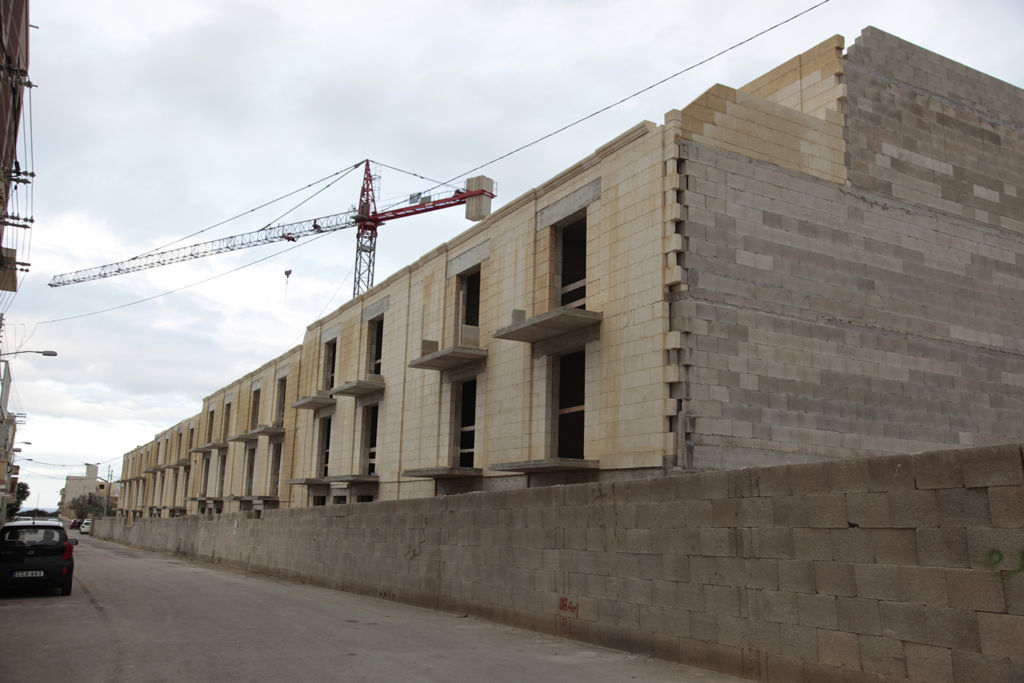
Qala
The sprawling residential project has already changed Qala’s townscape and character with its bulk and monotony, attracting much disdain on social media, even though the last 64 of more than 150 flats have yet to be built. Moviment Graffitti and the Qala council filed an ongoing appeal in a bid to stop the last 64 flats, for which the land is currently being excavated.
The project was split into four parts and applications put in by four separate individuals over the span of three years. If it had been put in as a single planning application, it would have been subject to screening for an Environment Impact Assessment and presumably intense public opposition. The Qala council would also have participated in planning board meetings on the project.
In the development applications for two of the parts, the two applicants were declared to be the “sole owner of the entire site indicated in the site plan.” The applicants were Chloe Portelli, daughter of Joseph Portelli, and Daniel Refalo, a partner in a company called Excel Investments Limited, which is majority-owned by Joseph Portelli.
At the time of the application, Excel only had a preliminary agreement or promise of sale – Excel eventually bought the land about two years later, on 1st May of this year. A preliminary agreement does not confer ownership.
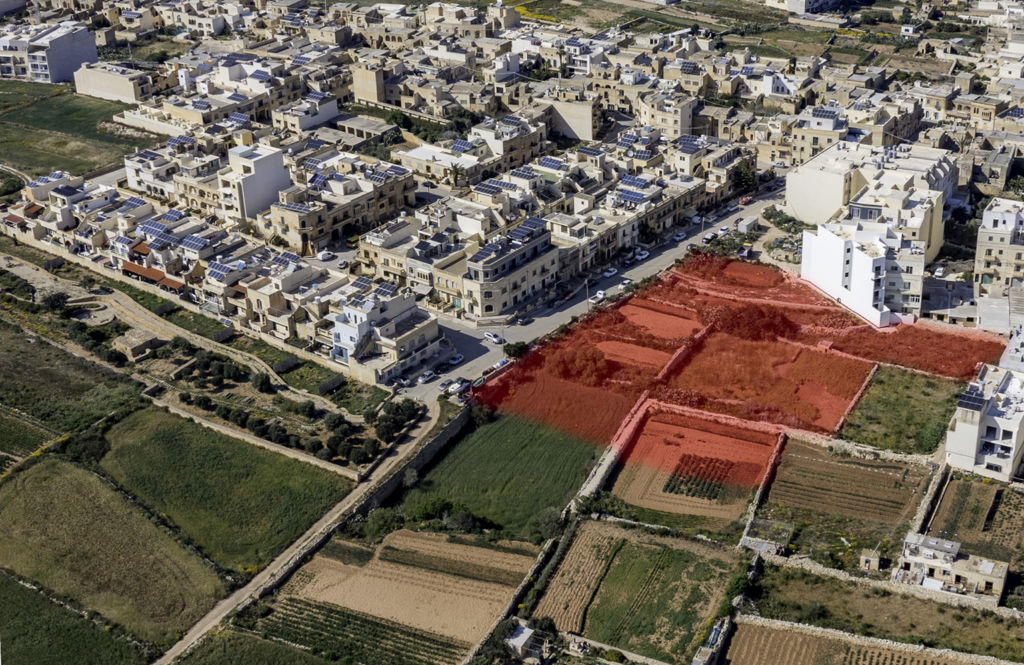
The then-leader of the political party Partit Demokratiku Timothy Alden last year wrote to the then deputy commissioner Carmelo Magri about the case. Magri referred it to assistant commissioner Ian Abdilla – who has recently been suspended from the police – to “investigate and report”.
In that first investigation, the police found “no wrongdoing.” Then, in July of 2020, the new police commissioner, Angelo Gafa, informed Alden in an email that he had “requested a report on the outcome of investigations.”
Three weeks ago, a police spokesperson told Lovin Malta that the outcome of the investigation has remained that “no wrongdoing of a criminal matter was found.”
The police did not elaborate further.
False declarations of ownership in development applications are dealt with in provisions in the Criminal Code and separately the Development Planning Act.
In a case decided in 2016, an individual was acquitted after it emerged that his siblings (and co-owners) had given tacit agreement to their brother to apply for a permit and wanted the development – of two extra floors on an existent block of flats – to proceed.
The judge held that those dynamics, including the fact that the outcome of application would have been the same irrespective of the ownership declaration, made the false declaration devoid of the elements of “gain” or “benefit” or “material respect” necessary for a conviction. The legal sources said that the Qala case differs in dynamic, scale, and other elements.

Same modus operandi moves to Sannat
Compelling circumstantial evidence has emerged that Joseph Portelli and his partners are repeating the same modus operandi in another sprawling block of flats in Sannat.
The Sannat development consists of three applications for three blocks of flats, each put in under a different individual, with a global total of 125 flats.
The proposed developments lie in a location of intensifying urban development around 300 metres away from the cliff edge near Ta Cenc, which is home to one of the largest colonies of nesting shearwaters – scopoli’s as well as yelkouan – in the Mediterranean. The nesting colony is an internationally Important Bird Area (IBA), and Birdlife International has identified “residential and commercial development” in the surroundings as a “high threat” to the IBA.
The first application in Sannat was put in by Mark Agius, whose family owns Ta Dirjanu supermarkets and who is, together with his brother, one of the owners of Excel Investments Limited. The applicants of adjacent blocks are Joseph Vella (for 29 flats) and Samuel Saliba (for 74 flats) – in the application form both declared to be “an owner of the entire site”.
Investigations by Lovin Malta have found that Joseph Vella works as a storekeeper and Samuel Saliba as an accountant at Ta Dirjanu supermarkets.
Lovin Malta contacted both of them to ask if they are owners of the site as they declared or if they made a false declaration of ownership. Both separately declined to comment, refusing to confirm or deny anything in relation to the veracity or falsity of their declaration of ownership.
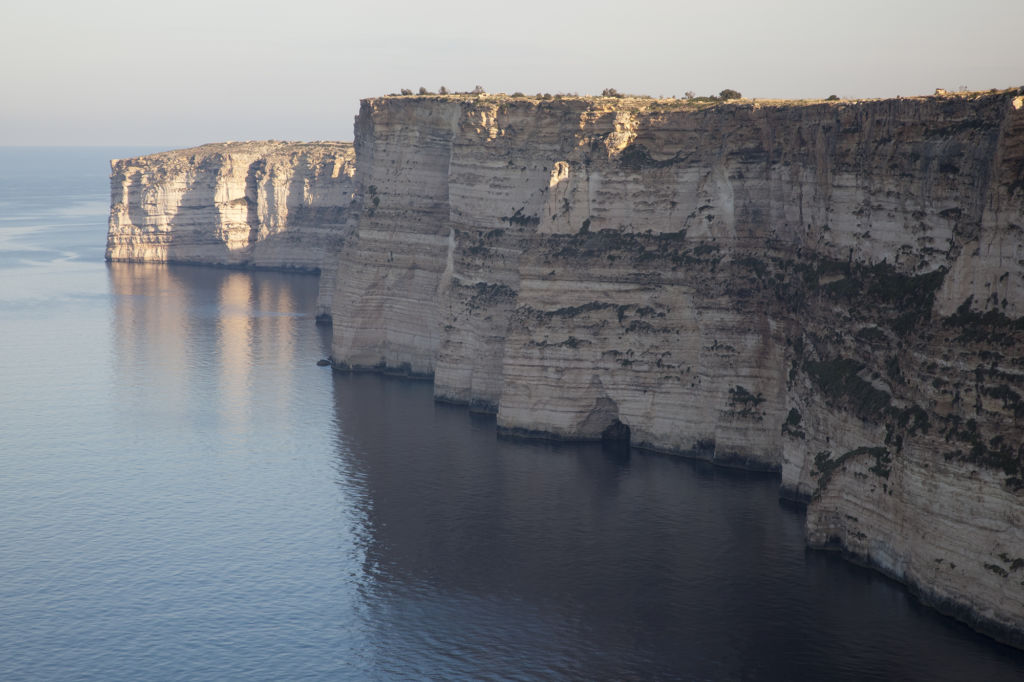
Planning Authority talks the talk
In reply to questions by Lovin Malta, a spokesperson for the Planning Authority said that, “on the matter of ownership, it is the sole responsibility of every applicant to rightfully declare to the Planning Authority his rights on the property subject to a development application.”
He elaborated that if the “Authority is in receipt of a submission stating that an applicant has allegedly submitted a false ownership declaration, the Authority shall request the applicant to give his/her position in relation to the submission.”
If a “false declaration” by an applicant is “established”, he added, “the Planning Authority has the right to proceed with the institution of criminal proceedings in terms of Article 103(1)(e) of Chapter 552.”
That is one of the provisions in the law that deals with “false, misleading or incorrect” declarations. The other is Article 188 of the Criminal Code.
Lovin Malta then asked the PA if it has inquired into three specific cases. These include the two Sannat cases mentioned above – for those cases, the PA spokesperson said, “no representations [letters] regarding site ownership were received”. The implication is that the authority will not investigate unless it receives letters from third parties.
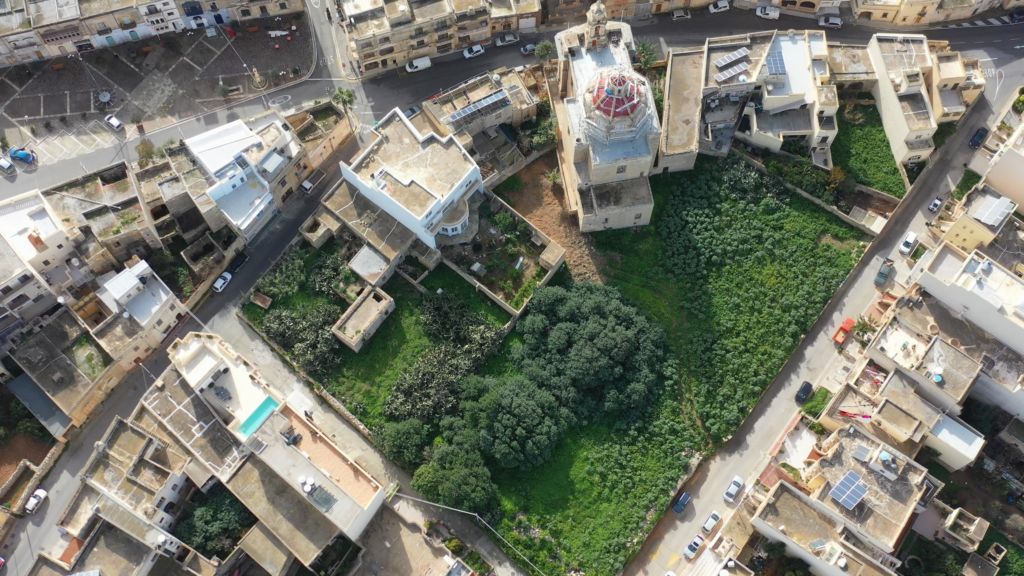
PA fails to ‘certify’ developer’s application
In the third case, a company called Titan Developments Limited applied to build 71 flats – now reduced to 55 flats, yet virtually keeping the same footprint – on the outskirts of Nadur, Gozo. Titan belongs to two individuals, including the applicant, Victor Hili, who declared to be an owner of the entire site.
The application triggered widespread opposition, with more than a thousand objections sent to the Planning Authority. Among them were three letters by members of an extended family, whose names are being withheld to protect their privacy, who claimed to be owners of part of the land and that Hili had made a false declaration of ownership.
Asked what the Planning Authority had done about this case, the spokesperson said that Hili’s lawyer had told the authority that the “applicant has signed a promise of sale for this site. A revised application form to reflect this was submitted.”
In the “revised application”, Victor Hili declared: “I am not an owner of the entire site, but I am authorized to carry out such proposed development through an agreement with the owner.”
Investigations by Lovin Malta have established that the individuals who wrote to the Planning Authority that a part of the land belonged to them have not signed any promise of sale agreements – or made any other agreement – with the applicant.
This means that the Planning Authority has settled on the explanation or new declaration given by the lawyer and the applicant.
Such reliance on a “unilateral declaration” by the applicant was renounced in a judgement by Chief Justice Mark Chetcuti in 2019.
“This is not what the law says,” the Chief Justice held, explaining that the law uses the word “certify”, and as such the authority has to seek prima facie evidence of ownership, “particularly when there is an objection by third parties.”
The judgement added that the onus is on the applicant to provide such evidence and that if the applicant does not provide “satisfactory information that he is the owner, or has the consent of the owner, or the evidence presented including a declaration on the application is not prima facie correct or really fraudulent, then the application cannot even be considered.”
What do you think of the issue?

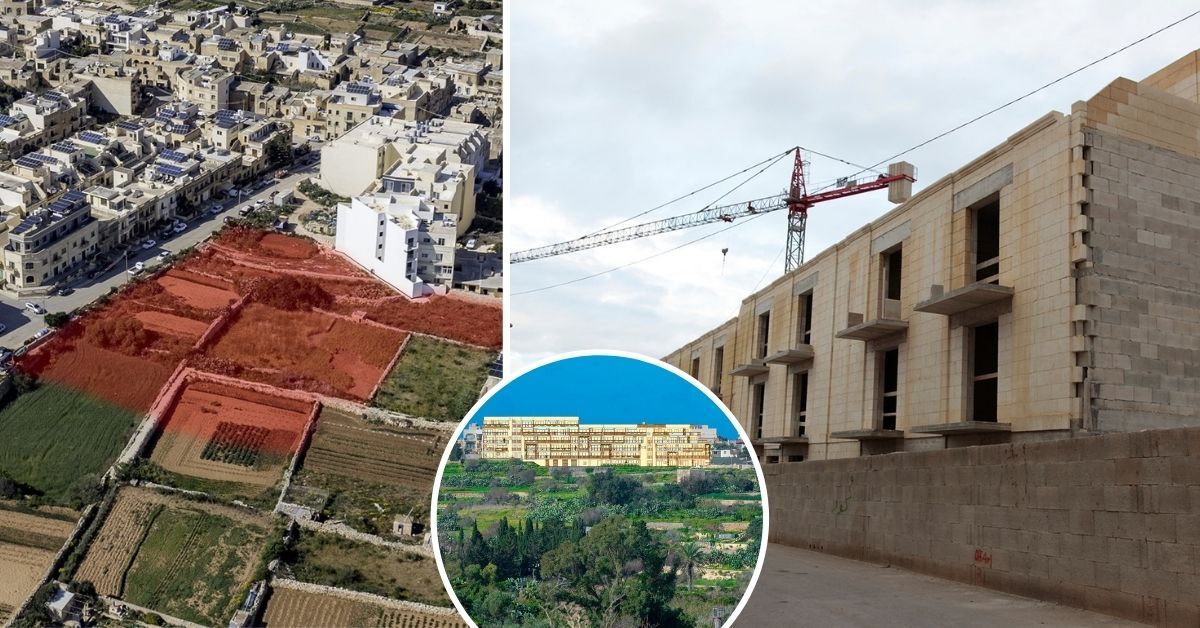
Recent Comments